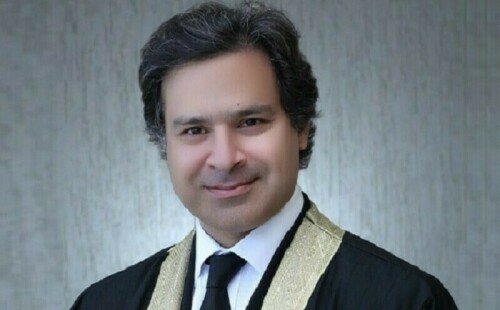THE second son of Haji Sir Abdullah Haroon, Mahmoud was born in Karachi in 1920. Being the scion of the celebrated Haroon family, Mahmoud had politics in his blood and joined the Muslim League at a very early age.
After studying in D.J. Science College and C.S. Shahani Law College, he joined the Muslim League and had the honour of becoming ADC to Quaid-i-Azam Mohammad Ali Jinnah when he was only 17. He was also Salar-i-Ala of the Sindh Muslim League Guard and later became Deputy Chief of the All-India Muslim League National Guard.
He became a member of the All-India Muslim League in 1942 and president of the Karachi Muslim League in 1944. Three years later, he became the president of the Sindh Bar Association and was elected to the Sindh Assembly.
When Pakistan came into being in 1947, he was an elected member of the Sindh provincial assembly and remained so until 1950. Three years later, he was elected the Mayor of the Karachi Municipal Corporation and paid special attention to Lyari, which received 50 per cent of the municipal budget. In 1956 he became a member of the West Pakistan Assembly until its dissolution in 1958 when martial law was imposed, the Constitution was abrogated and all the assemblies dissolved.
He won a seat from Karachi in the first general election held in 1965 to the National Assembly but resigned his membership to join the Nawab of Kalabagh’s cabinet as labour minister. But his decision to support Mir Ghous Bux Bizenjo against Ayub Khan’s official candidate for the National Assembly would lead to his exit from the Cabinet. In 1968 he became Pakistan’s High Commissioner in Britain, and following the change of government in Pakistan he joined the federal cabinet under the Yahya regime as minister for agriculture, reportedly because Sheikh Mujibur Rehman had nominated him.
After the 1971 separation of East Pakistan, he remained in exile in London, only returning in 1974 when he suffered the bereavement of the loss of a daughter. The three years of his exile had seen what was described as the ‘battle for Dawn’ between the Government and the owners. But Zulfikar Ali Bhutto is reported to have made his peace with Mahmoud Haroon when he came to offer his condolences at the loss of the latter’s daughter. It was after this, in the mid-seventies, that Mr Haroon went to Dubai and set up the daily Khaleej Times.
Because of the Haroon family’s political role and the independent policies of their paper, Dawn, the Haroons and Mahmoud himself personally suffered political persecution. Both the Ayub and Bhutto regimes hit hard at the family’s industrial fortunes. The imposition of martial law in 1977 brought him back into important positions. He joined Ziaul Haq’s cabinet as minister of the interior in 1979 and remained with the government till 1984. In 1988, he joined the federal government again as defence minister in the government headed by President Ghulam Ishaq Khan. In 1990, when the PPP government was dismissed, he was appointed the Governor of Sindh and remained in that position until July 18, 1993. On July 23, 1994, when the PPP government was in power, he became Sindh governor once again. He, thus, is the only person to have held Sindh’s gubernatorial office twice and chose to quit of his own accord each time.
Of late, Mahmoud Haroon had been keeping bad health. Throughout his life, he kept a low profile and hated publicity. Even though he was the owner of the Dawn group of publications, he never used any of the papers for his personal publicity and self-projection. The biggest legacy he leaves behind is Dawn, of which he was justly proud. In spite of being in the thick of politics and holding important positions in federal and provincial governments, Mahmoud Haroon never let the government of the day interfere in Dawn’s policies, and he himself let the editors pursue the paper’s policy according to the highest traditions of balanced journalism. He never aspired to edit the paper and placed his faith in professional editors. The authority and freedom he delegated to the editors enabled Dawn to become one of the region’s most respected newspapers, in a befitting tribute to his far-sightedness.















































Dear visitor, the comments section is undergoing an overhaul and will return soon.